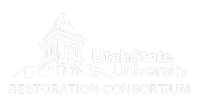USFW Wyoming Unlimited Assessment and Design Workshop
</div>
June 23-27, 2025
Description
The workshop is intended to provide more advanced instruction related to riverscape assessment and design of low- tech’ process-based restoration (LTPBR) for resource managers, land-owners, and conservation groups. We will review principles guiding low-tech process-based restoration, beaver ecology, and construction and logistics approaches for low-tech structures, including Beaver Dam Analogues (BDAs) and Post-Assisted Log Structures (PALS). However, the focus of the workshop will be on gaining a greater understanding of the questions to ask during the assessment and design processes, how to identify and manage uncertainty, and how to implement projects in an adaptive management framework to maximize “learning by doing”. There will be a review of potential GIS tools to assist in the planning process, but we will not be providing training on the tools. We will also provide updates on lessons learned from assessing, planning, and implementing dozens of LTPBR projects across a wide variety of geographic settings. A LTPBR website is provided which includes more in-depth information including links to digital copies of a low-tech process-based restoration manual and pocket guide, and many online lecture series which can be viewed either as videos or pdf documents. We encourage workshop participants to review Module 1 online or read chapter 1 from the Low-tech Manual before the workshop (see link below). Digital copies of the manual and pocket guide are available free of charge from the low-tech webpage.
Supporting Materials
General Low-tech PBR website 2020 Complete Low-tech PBR online virtual workshop
Agenda
Monday, June 23
1. Introductions & Agenda
9:00-9:15: Introductions, Agenda, & Goals of Workshop
</ul>
2. Background and Principles
9:15-9:30: Background (PG p.5, DM Ch.1)
- What we've lost and importance of structure
- Questions/Discussions 5-10 mins
9:30-9:45: Guiding Principles ((PG p.1, DM Ch.2)
- Process-based Restoration Principles
- Riverscape and Restoration Principles
Section Questions/Discussions 5-10 mins
- Review papers
3. Assessment, Uncertainty, Design, & Implementation
9:45-10:15: Connecting Observations with Goals and Objectives (PG p.7, DM Ch.3)
- Historic Imagery - Matt Scott
- Assessment and Interpretation
- Setting - regimes \(flow, sediment, and wood/vegetation), beaver, geomorphic
- Uncertainty - risk, adaptive management, and expectation management
- Questions/Discussions/Exercises 10-15 mins
10:15-10:30 - BREAK
10:30-10:45: Planning & Design Process (PG p. 20, DM Ch.5)
- Riverscape models
- Elements of a LTPBR design
10:45-11:00: Low-tech Approaches & Implementation (PG p.23, DM Ch.4&6)
- Low-tech toolbox \(beaver mgt, riparian mgt, forestry mgt, structures)
- Questions/Discussions 5 mins
Section Questions/Discussions 10-15 mins
4. Science & Policy
11:00-11:15 Science behind Low-tech process-based restoration (MOD. 1) – Steve
- Case-studies of riparian & beaver management, and low-tech structure projects
- Where it works; Where it does not
- Questions/Discussions/Exercises 5-10 mins
11:15-11:30 Permitting and Water Rights (MOD. 5c) – USFS Matt Scott -Social, permitting, and legal aspects of low-tech design and implementation -Questions/Discussions 5-10 mins
5. Discussion & Questions
11:30-12:00. Participant Discussion Topics/Ask a Low-tech Practitioner a Question - All
- Class participation and discussion on material presented and other topics
12:00-13:30. LUNCH AND TRAVEL to Spearfish and Little Spearfish
- Matt to provide directions and details

